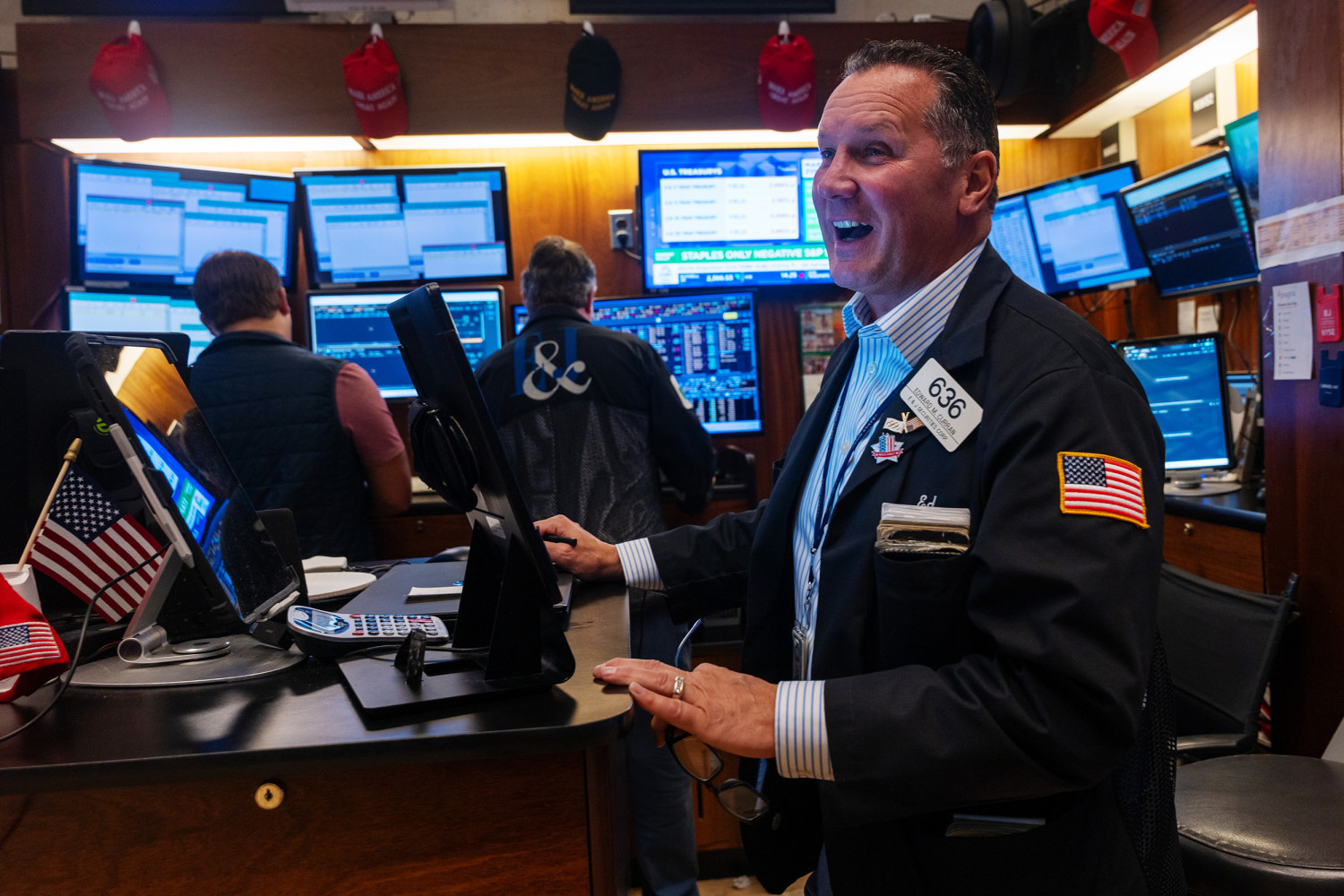Target Corporation has revealed a major executive shift, selecting a new CEO as it seeks to boost sales and reshape its standing in the competitive retail sector. This decision arises in response to increasing pressure from shareholders and industry experts who have observed stagnant growth and evolving consumer trends in recent times. The choice underscores Target’s dedication to strategic revitalization and enduring stability.
The major retailer is navigating a difficult landscape where rapidly changing consumer demands are evident. The rise of online purchases, services prioritizing convenience, and shoppers who are sensitive to prices have pushed conventional retailers to rethink their strategies. Target’s latest results have underscored the necessity for fresh leadership to guide the company through these developments and regain trust from investors. The incoming CEO is anticipated to offer a blend of experience, innovation, and operational skills to this position.
The appointment follows a period of introspection at Target. The company has seen a mix of successes and setbacks across its physical stores and e-commerce operations. While it remains one of the most recognizable brands in the United States, competition from other big-box stores, digital-first retailers, and niche brands has intensified. The leadership change signals a renewed focus on enhancing customer experience and increasing market share.
Investors have reacted positively to the news, viewing it as a possible pivotal moment for the organization. Target’s shares have shown variability recently because of overall economic trends and consumer purchasing behavior. By appointing a CEO with proven success, the company intends to stabilize its progress and implement projects that can enhance earnings. Experts anticipate that distinct strategic goals will be determined shortly, concentrating on immediate outcomes and the brand’s long-term market standing.
The newly appointed CEO faces a number of significant obstacles. One key priority is enhancing sales within the same stores, as there have been indications of a decline. Consumers nowadays are more discerning, frequently evaluating prices on various platforms prior to buying. The management at Target must discover methods to set its products apart, possibly through unique merchandise, better pricing tactics, or upgraded in-store experiences that lure customers again.
Digital transformation will also be high on the agenda. The retail landscape has been reshaped by the rapid growth of online sales and mobile commerce. Target has invested heavily in digital infrastructure over the past few years, but the new CEO will need to integrate these investments into a cohesive strategy. Optimizing inventory, streamlining supply chains, and providing seamless online-to-offline experiences are critical to maintaining competitiveness in an increasingly tech-driven market.
Beyond sales and operations, brand perception plays a significant role in Target’s growth trajectory. The company has cultivated a reputation for affordability and quality, but changing demographics and consumer priorities require continuous adaptation. Sustainability initiatives, community engagement, and inclusive marketing efforts have become essential components of modern retail strategies. The new leadership team is expected to reinforce these values while identifying new opportunities for brand relevance.
Employee engagement and workforce management represent another key challenge. Target employs hundreds of thousands of staff across its stores, distribution centers, and corporate offices. Ensuring high morale, effective training programs, and clear communication will be essential to implementing any strategic shift. Leadership that can inspire and guide employees through transitions will be a crucial factor in achieving operational success.
Target’s competitive landscape adds further complexity to the CEO’s role. Rivals such as Walmart, Amazon, and Costco continue to innovate, forcing Target to refine its own strategies. Differentiation may come from exclusive product lines, loyalty programs, or improved customer service. The new CEO will need to leverage data analytics and market research to anticipate consumer needs and respond more quickly than competitors.
Financial Strategy is an additional focus area. Ensuring profits in conjunction with funding expansion efforts demands meticulous preparation. Decisions regarding the allocation of funds, covering investments in refurbishing stores, advancing technology, and advertising efforts, must be aligned with shareholder desires for profits. The CEO is expected to emphasize projects that deliver tangible outcomes while setting up the company for enduring development in the long term.
Target’s recent efforts in same-day delivery, curbside pickup, and digital shopping tools have been important steps in adapting to changing consumer behavior. However, the company faces the challenge of scaling these services efficiently while maintaining quality. The new leadership team will need to assess operational performance, identify bottlenecks, and implement solutions that improve service without eroding margins.
The broader retail market remains influenced by economic factors such as inflation, interest rates, and consumer confidence. Target’s ability to navigate these macroeconomic pressures will depend on strategic agility and operational efficiency. The new CEO will need to make timely decisions regarding pricing, promotions, and inventory to remain competitive while protecting profitability.
Customer loyalty will also be a key driver of future success. Target has invested in programs such as its loyalty rewards platform and exclusive brand partnerships to encourage repeat purchases. Strengthening these initiatives while exploring new engagement methods can help increase lifetime customer value and deepen connections with target audiences. The leadership team will likely focus on refining these programs to maximize impact.
Sustainability and corporate responsibility are increasingly important in retail. Consumers are paying closer attention to environmental and social practices when choosing where to shop. Target has made commitments to reduce carbon emissions, expand sustainable product offerings, and support local communities. The new CEO is expected to build on these initiatives, aligning them with broader business objectives to enhance both reputation and long-term competitiveness.
Innovation in merchandising and product strategy will play a central role in Target’s revival efforts. Identifying trends, sourcing in-demand products, and creating differentiated offerings are essential for attracting shoppers. The CEO will need to foster a culture of innovation within the merchandising team, ensuring that the company remains relevant and exciting in a crowded marketplace.
Estrategies related to marketing and communications will play a crucial role. Developing campaigns that connect with consumers by focusing on value, quality, and ease will be essential for regaining momentum. Transparent communication about Target’s aims and services, together with marketing efforts informed by data, can aid in boosting traffic both on the web and in physical locations.
Looking ahead, analysts expect that the leadership change could serve as a catalyst for transformation. While challenges remain, including competition, operational complexity, and economic pressures, a fresh perspective at the top provides an opportunity to set a bold agenda. The focus will likely be on long-term growth, digital expansion, and strengthening customer relationships across all channels.
Target’s capacity to rejuvenate sales hinges on synchronized efforts across various areas. Clear strategy, efficient operations, brand creativity, workforce commitment, and digital evolution must harmoniously align. The newly appointed CEO has a crucial responsibility: finding the equilibrium between achieving short-term outcomes and making essential investments to ensure Target’s leadership in contemporary retail for the future.
By introducing new leadership, Target demonstrates both a sense of urgency and a drive to achieve more. The organization realizes that maintaining progress demands active management, innovative strategies, and a strong grasp of evolving consumer habits. If carried out effectively, this shift in leadership may signal a pivotal moment in Target’s path, rebuilding trust among shareholders, staff, and clients.
The retail world will be watching closely. Competitors, analysts, and consumers will evaluate whether Target’s new leadership can deliver meaningful results and navigate the challenges of a rapidly evolving marketplace. The stakes are high, but the potential reward is equally significant: reaffirming Target’s status as a major player in U.S. retail while setting the stage for sustainable growth in the future.







